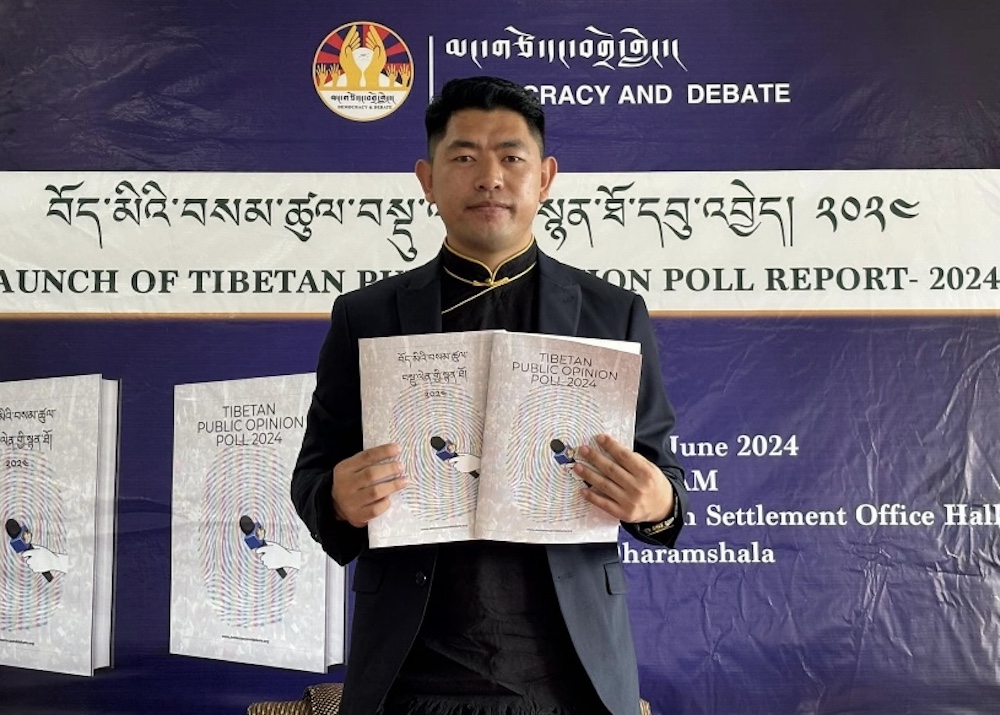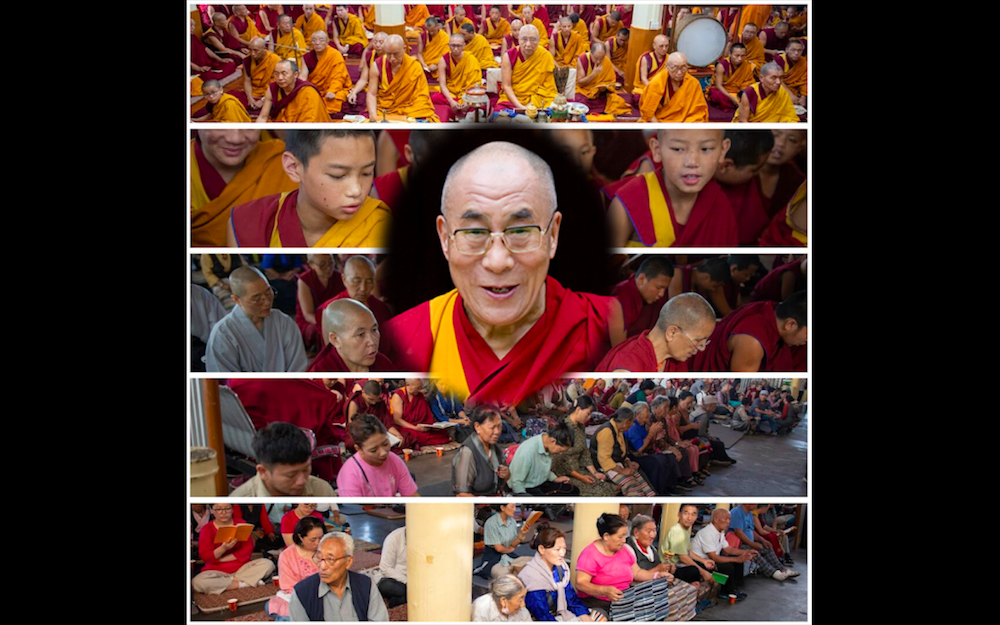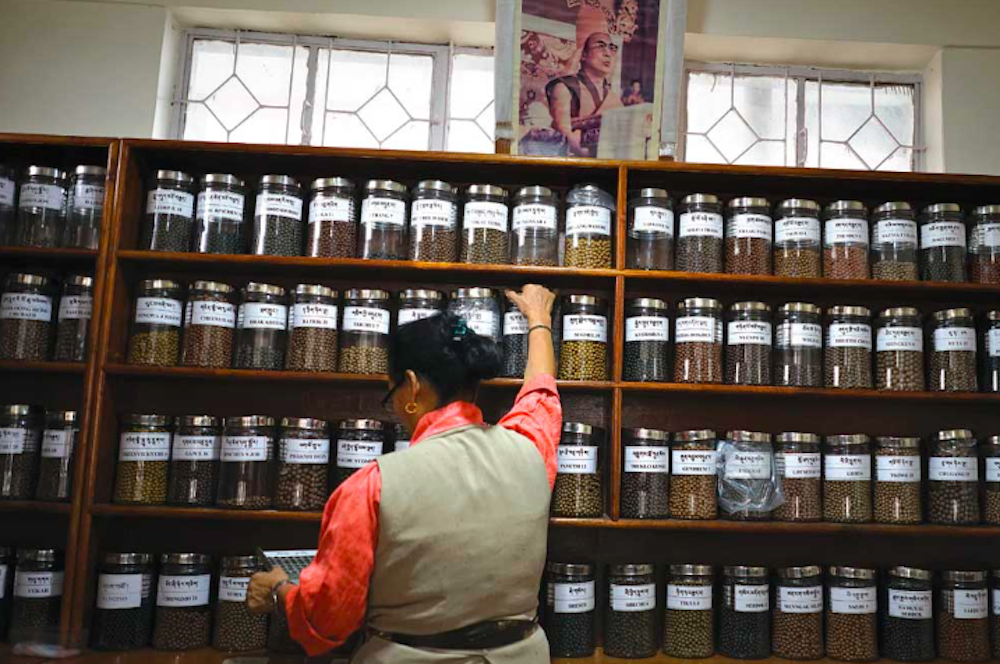The exile Tibetan music scene at first glance is a reluctant cocktail of generic pop culture replicas, propelled by new artistes who are introduced every Kalachakras and Losars only to vanish shortly afterwards, while so-called seasoned musicians earn their dues performing live shows at any respectable gathering in the Tibetan diaspora whether it is in Jackson Heights, New York or the remote Menchuka in Arunachal Pradesh, tucked safely in the far corner of Northeast India. It is not a farfetched observation to say that while Tibetan music in exile is not devoid of talent, it has no machinery or market to sustain talent financially in the long run.
Social network and YouTube have given a whole new platform for Tibetan artists to showcase their talents and become Tibetan celebrities. The Tibetan rap scene in exile has come up slowly but steadily with artists like G-Tashi, K.Kush and T-nammy among many other. There is already a mini showbiz industry thriving right under our nose with talents breaking through barriers and norms as we know it.
First female rapper
Despite the bleak conditions for Tibetan exile music monetarily and in terms of generating revenue, there are refreshing developments. A surge in music video productions by newer artists are on the prowl, expanding presence on the internet, hence by theory on the global platform. Sticking out refreshingly, amongst the new crop, Tenzin Seldon or Tibchik as she likes to be referred to, is in addition to being the first legitimate Tibetan female rapper, is also an unlabelled feminist, at core a rebel and a pioneer in her own right.
In 2017, she released five new singles on her YouTube channel raking in collectively over hundreds of thousand views and adding to subscribers list that has crossed over 17.2 K and growing by the day. Her peppy singles such as “Don’t test me” and “fearless” may be representational of the new Tibetan psyche which aspires to tenets like ‘everything is achievable’, at the same time pulled back by the invisible yet intrinsic strain of either being a refugee or an immigrant pushing for normalcy on far basic levels.
Being the first female Tibetan rapper, she says she is proud and happy that people are beginning to notice her because she is different. “But that’s what I wanted to bring it to the table; something new, fresh and unique. My songs and lyrics are very different from other Tibetan rappers,” she told Phayul.
While there aren’t any female rappers in the Tibetan community, it is not as though she has assumed this new-found recognition by default. Seldon says she spent almost four years struggling to approve of her own music, the anxiety that comes with it and going by a self-induced complex to never celebrate mediocrity. “I would cringe watching my own videos I shot on my crappy mobile phone. There was no editing or any production value in them. For months on end, I would try and learn to edit video through tutorials on the internet but struggled to pick up on it. The aim was always to put out something that is good,” she confesses in her vlog.
And that is very much a part of being an enterprising musician starting out. To be able to multi-task on being a singer-songwriter, music video producer and director, all that feather on one hat. “Being able to trust others is important, taking help and collaborating with others can help you with your shortcomings and accentuate your qualities,” she says.
Roots and Revelation
Being a second generation Tibetan in exile whose only link to their roots is through the narratives of their parents and grandparents, it is sometimes difficult to develop an authentic affinity with what they have never seen or felt. Some of her male counterparts, Kunga Norbu AKA Shabaley and Tenzin Seungyi, it would seem, has found it easier to identify with exploring the space of being a Tibetan, and made songs on Tibet.
Seldon asserts she wants to and has plans to make songs that are representative of her roots but that she fears her style of music might draw harsher backlash when its political. “There had been many negative comments speaking against the type of Tibetan I speak and rap. I want people to look beyond the slang, I want people to understand what I’m actually saying through my rap and not trying to sound smart or feel accepted in our community by changing the way I rap/speak or look. And most importantly people know that – Hip-hop has never played by the rules,” she told Phayul.
Her affinity to being honest to her surroundings and realities is however apparent through the lyrics of one of her songs which goes, “shugu ra doki re”, meaning you’ll get your papers (for citizenship)”. An immigrant herself, she was born in Delhi and moved to the Netherlands as a teen. “I personally didn’t have trouble with the paper or documents because my mom was a citizen of this country. But a lot of Tibetans suffer and go through a lot to get the document/citizenship,” she says.
However, the barren feeling of not belonging was something a piece of paper could not solve; “As a Tibetan/Asian coming to this country, I felt kind of like an outsider. We used to live in a small village where you won’t see any Asian people around so I felt really different and disconnected with others.” And in effect, that reflects in her music with songs like “fearless” that calls for redemption, self-reliance and to strive for better things.
The Tibetan youth who aspires to be a fashion designer says there is misogyny embedded even in the Tibetan music scene. “If you are a woman and you are not exceptionally good, you will not be noticed. It is definitely easier for men even in the small Tibetan community,” she says. And true to her belief, one of her songs goes, “Don’t bully me just because I am a woman”.
The Hip-hop culture found its way in the Tibetan community for some time now but with the kind of originality and the kind of seemingly-inarticulate-yet-packed-with-message songs that artistes like Seldon aspires to come forth with, it’s time we open our unbiased ears and welcome contents such as hers.









